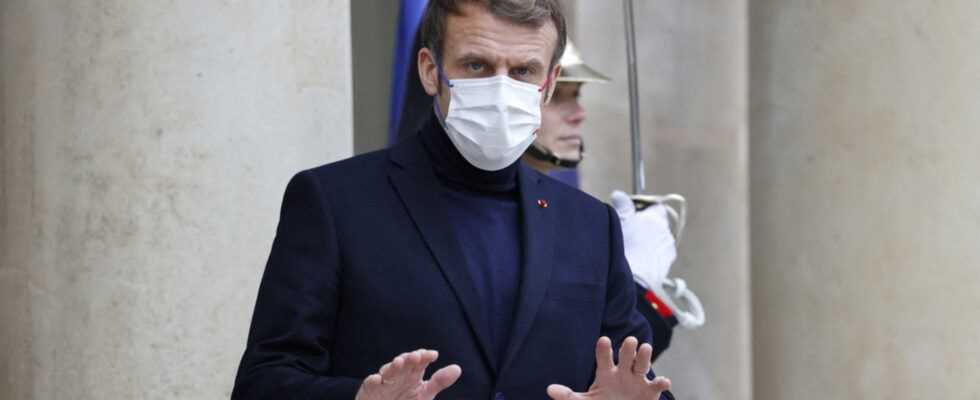Nicolas Beytout
, modified at
10:51 a.m., December 23, 2021
A very delicate political subject for Emmanuel Macron. Despite the spread of Covid-19, reinforced by the Omicron variant, government spokesman Gabriel Attal ruled out on Wednesday leaving the Council of Ministers a postponement of the presidential election of 2022. Editorial writer Nicolas Beytout underlines the difficulty for the executive to make the decision to postpone such an election in France.
An epidemic that has already upset electoral deadlines
The president therefore intervened during the council of ministers on Wednesday to rule out a postponement. A declaration made in a solemn setting in an attempt to wring the neck of a rumor that had swelled for three days. The reason is obviously the very rapid rise in power of the fifth, or the sixth wave, we do not know too much, of the Covid-19.
On two occasions already, this epidemic had shaken up an electoral meeting in France: the first time, it was in 2020 for the municipal authorities. The first round took place under surreal conditions of virtual confinement, and the second round had been postponed by several months. A scenario that was repeated on the occasion of the regional elections, which were to be held last March but which were postponed twice, mid-June then end-June.
A discussion on “voting methods”
So why not this time for the presidential election, if the sanitary conditions are not more fulfilled? This hypothesis gained consistency when the newspaper The Parisian revealed that the Minister of the Interior Gerald Darmanin, who is in charge of the organization of the elections, had asked the Constitutional Council to, it is said in his entourage, “to discuss the modalities of the poll in the health context”. Hey, the voting methods?
So there is a hidden project, some sharp and suspicious minds immediately concluded. Gabriel Attal, the spokesperson for the government, had denied, twice in unequivocal terms, the rumor was there. It therefore took the intervention of the Head of State to put an end to it and nip in the bud anything that might suggest that the government would flee the political debate and the campaign.
The complex revision of the Constitution
But, in the current state of the law, legally, this does not seem to be a possibility. The Constitution provides for three cases of total or partial postponement of the presidential election, but each time, it is linked to the unavailability or disappearance of a candidate. This means that to get around it, it would be necessary to revise the Constitution as a matter of extreme urgency, as much to say that it would be quite a barnum. Above all, it would instantly become a huge subject of political controversy.
The candidates who are already launched in their campaign would see their schedules upset, and the one who has not yet declared himself – Emmanuel Macron – would have all the benefit of the one who controls the situation and remains in power beyond the end of his mandate. Because, of course, extending the mandate of a mayor or a regional councilor, as we have done for the past 2 years, does not have the same scope as leaving a head of state in place . It would be a huge democratic challenge.
France as destitute as for the municipal elections
If France were completely unable to vote, for example with lockdown or other health restrictions, that would also be a political problem. The country is today as destitute as it was for the municipal and regional ones. Nothing has been done to consider this hypothesis, and apart from a few tests on the occasion of the vote of French people living abroad, nothing substantial has been done to study alternative solutions.
They do exist, however, and are mostly applied in large democratic countries. I am thinking of advance voting, postal voting, or internet voting. For the moment, France has always postponed serious examination of these avenues, considering that the technology presented too many risks. So here is a country in which an incalculable number of citizens manage their bank accounts, pay their taxes, do part of their dealings via the Internet, but who would be unable to vote for such and such?
Not everyone has the Internet, it is explained. That’s right, so postal voting can avoid queues outside polling stations. The reality is that for this subject, as for everything relating to the reform of institutions, Emmanuel Macron has not fulfilled his promises. Nothing has happened in this area during the entire five-year term. And the Covid risks making us pay for it.
